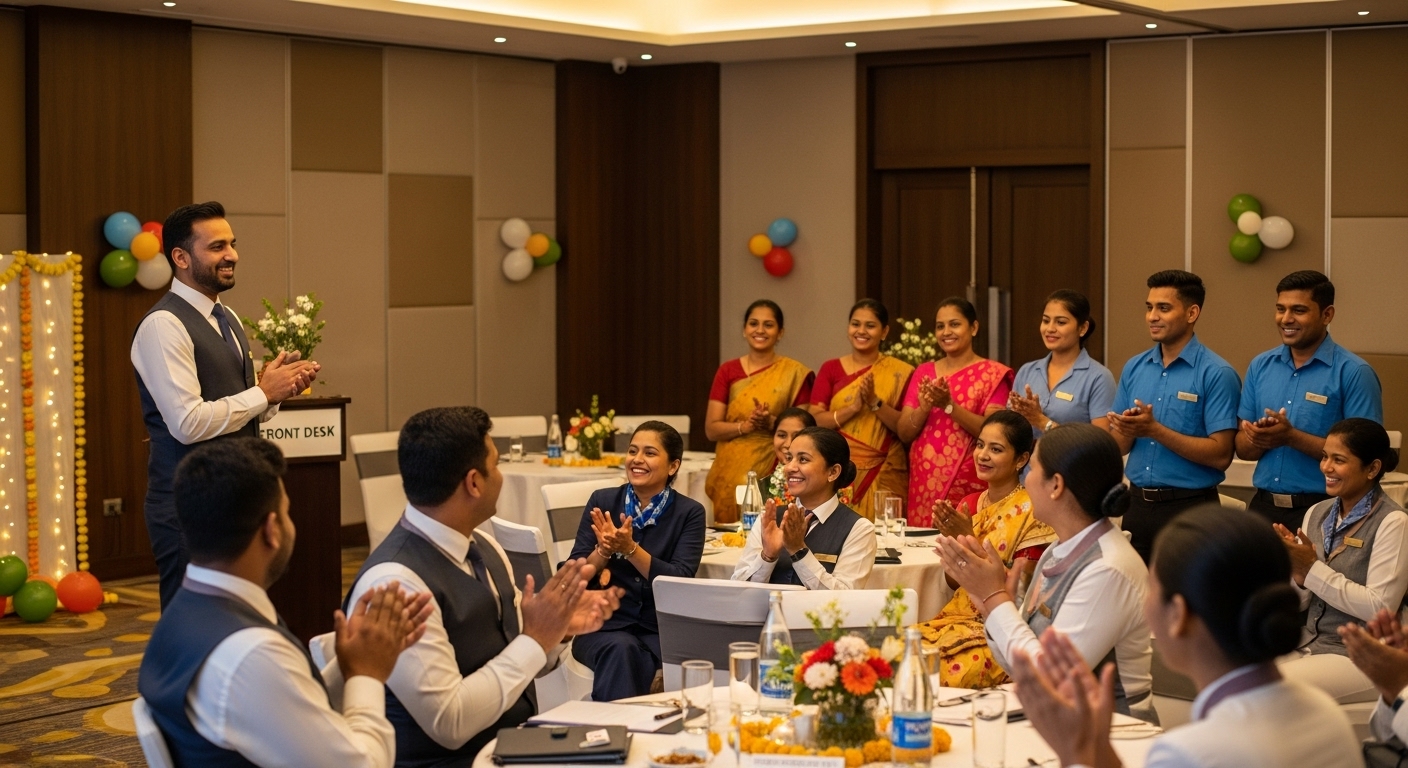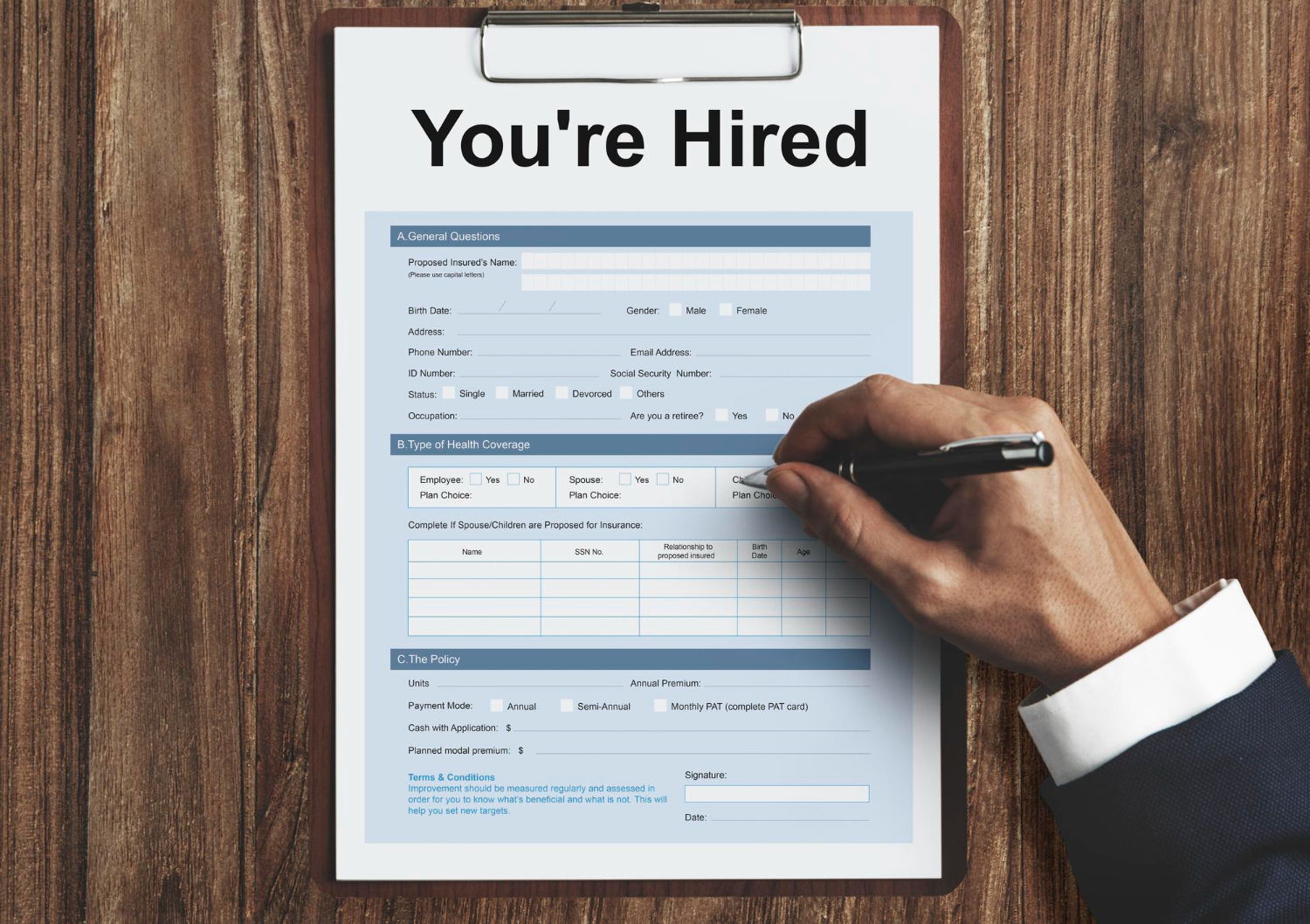As a hotelier with years of experience in the industry, I’ve seen firsthand how crucial a well-crafted hotel leave policy is for maintaining smooth operations while ensuring employee satisfaction. In the 24/7 world of hospitality, balancing staff needs with guest expectations can be challenging, but it’s essential for success.
The Importance of a Comprehensive Hotel Leave Policy
A thoughtfully designed hotel leave policy is vital for several reasons:
- Ensures continuous guest service
- Maintains staff morale and well-being
- Complies with Indian labor laws and regulations
- Manages operational costs effectively
Key Components of an Effective Hotel Leave Policy
1. Types of Leave
Your hotel leave policy should clearly define various types of leave, including:
Annual Leave (also known as Earned Leave or Privilege Leave)
- Purpose: To provide employees with paid time off for rest, relaxation, and personal matters.
- Sample Policy: “Employees are entitled to 12 days of Annual Leave per year, accruing at 1 day per month, which can be used after completion of one year of service.”
- Legal Compliance: As per the Factories Act, 1948, every worker who has worked for 240 days or more in a factory during a calendar year shall be allowed leave with wages at the rate of one day for every 20 days of work performed[^1]. For establishments covered under the Shops and Establishments Act, the leave entitlement may vary by state.
Casual Leave
- Purpose: To allow employees to take time off for unforeseen circumstances or emergencies.
- Sample Policy: “Employees are granted 12 days of Casual Leave per calendar year, with a maximum of 3 consecutive days allowed at a time.”
- Legal Compliance: Casual Leave is not statutorily mandated in India. However, many organizations provide it as a benefit to employees. The number of days and terms may vary based on company policy.
Sick Leave
- Purpose: To provide paid time off for health-related absences and medical appointments.
- Sample Policy: “Employees are entitled to 12 days of Sick Leave per year, with leaves exceeding 2 consecutive days requiring a medical certificate.”
- Legal Compliance: The Factories Act, 1948 provides for 12 days of sick leave with full wages for workers who have completed 12 months of continuous service [^2]. For other establishments, sick leave provisions may be governed by state-specific Shops and Establishments Acts or company policy.
Maternity Leave
- Purpose: To support female employees before, during, and after childbirth.
- Sample Policy: “Female employees are entitled to 26 weeks of paid Maternity Leave for the first two children, and 12 weeks for the third child.”
- Legal Compliance: The Maternity Benefit (Amendment) Act, 2017 mandates 26 weeks of paid maternity leave for the first two children and 12 weeks for the third child. It also provides for 12 weeks of leave for adoptive and commissioning mothers [^3].
Paternity Leave
- Purpose: To allow new fathers time to support their partners and bond with their newborn.
- Sample Policy: “Male employees are granted 5 days of Paternity Leave, to be taken within one month of the child’s birth.”
- Legal Compliance: There is no statutory provision for paternity leave in the private sector in India. However, many companies offer it as a benefit. Central government employees are entitled to 15 days of paternity leave [^4].
Bereavement Leave
- Purpose: To provide employees time to grieve and attend funeral services for immediate family members.
- Sample Policy: “Employees are entitled to 3 days of paid Bereavement Leave per occurrence for the death of an immediate family member.”
- Legal Compliance: There is no statutory requirement for bereavement leave in India. Companies may offer it as part of their HR policy.
Compensatory Off
- Purpose: To compensate employees who work on their weekly offs or public holidays.
- Sample Policy: “Employees who work on a weekly off or public holiday will be granted a Compensatory Off, to be availed within 30 days of accrual.”
- Legal Compliance: While not specifically mandated, this aligns with the spirit of the Factories Act, 1948, which requires compensatory holidays for those working on weekly holidays [^5].
Public Holidays
- Purpose: To observe nationally and regionally significant days.
- Sample Policy: “The hotel will publish a list of public holidays at the beginning of each calendar year, with employees working on these days eligible for overtime pay or Compensatory Off.”
- Legal Compliance: The number of compulsory public holidays varies by state, typically ranging from 3 to 11 days. Additional holidays may be negotiated between employers and employees [^6].
Weekly Offs
- Purpose: To provide employees with regular rest periods.
- Sample Policy: “All employees are entitled to one Weekly Off day, ensuring at least 24 consecutive hours of rest, as per the duty roster.”
- Legal Compliance: The Factories Act, 1948 mandates that workers should get at least one day of rest in a week, with a minimum of 24 consecutive hours of rest [^7]. Similar provisions exist in various Shops and Establishments Acts.
2. Leave Application Process
Establish a clear process for leave applications:
- Use a standardized leave application form
- For leaves exceeding 7 days, apply at least 15 days in advance
- Specify rules for same-day leave requests (e.g., allowed for sick leave but not for casual leave)
3. Accumulation and Encashment Rules
Define rules for leave accumulation and encashment:
- Annual Leave can be accumulated up to a maximum of 24 days
- Specify which leaves can be encashed at the time of separation (e.g., unutilized Annual Leave)
4. Special Considerations of Hotel Leave Policies for 24/7 Operations
Address the unique needs of round-the-clock hotel operations:
- Compensatory Off policy for employees working on weekly offs or public holidays
- Flexible weekly off system to ensure 24 consecutive hours of rest while maintaining operations
5. Leave Rules During Notice Period
Establish clear guidelines for leave during the notice period to ensure smooth transitions and maintain operational efficiency.
Sample Policy: “During the notice period, all accumulated leaves are lapsed except Annual Leave and Compensatory Offs. No new leaves can be applied for or granted during this period except Weekly Offs and Public Holidays. Any leave taken during the notice period will result in Loss of Pay and may extend the notice period.”
Compliance with Indian Labor Laws
Ensure your hotel leave policy complies with Indian labor laws, including:
Addressing Unique Hospitality Industry Challenges
1. Peak Season Management
Implement specific rules for leave during peak seasons:
“Leave requests during peak seasons (e.g., December-January, local festivals) must be submitted at least 30 days in advance and are subject to management approval based on operational requirements.”
2. Shift Work Considerations
Tailor your leave policy to accommodate shift workers:
- Allow for half-day leave options for casual and sick leave
- Implement a fair system for allocating weekly offs across all shifts
3. Long-term Leave Planning
Encourage long-term leave planning to ensure adequate staffing:
“Employees are encouraged to submit their leave plans for Annual Leave at the beginning of each quarter to facilitate better resource allocation.”
Communication and Implementation
To ensure the effectiveness of your hotel leave policy:
- Clearly communicate the policy to all employees during onboarding
- Make the policy easily accessible (e.g., in employee handbooks, intranets)
- Train managers on policy implementation and the importance of fair application
- Regularly review and update the policy to address changing needs and legal requirements
Leveraging Technology for Leave Management
At Zarnik, we’ve seen how technology can streamline leave management for hotels. Consider implementing a digital leave management system that:
- Facilitates easy leave applications and approvals
- Tracks leave balances in real-time
- Integrates with your scheduling system to highlight potential understaffing
- Provides analytics for better decision-making and policy refinement
Future Trends in Hotel Leave Policies
As the hospitality industry evolves, so too will leave policies. Here are some trends to watch:
- Flexible Leave Options: More hotels may adopt flexible leave policies, allowing employees to choose how they use their leave days.
- Mental Health Days: Recognition of mental health importance may lead to specific leave allocations for mental well-being.
- Remote Work Integration: As some hotel roles become more digital, policies may evolve to include provisions for remote work days.
- Personalized Leave Packages: Hotels may offer customizable leave packages as part of employee benefits to attract and retain talent.
- AI-Driven Leave Management: Advanced AI systems may help predict staffing needs and optimize leave approvals.
- Sustainability Leave: Some hotels may introduce leave options for employees to engage in environmental or community service activities.
Creating an effective hotel leave policy is an ongoing process. It requires regular review and adaptation to changing laws, employee needs, and business requirements. By striking the right balance and staying ahead of trends, you can ensure smooth 24/7 operations while maintaining a satisfied and productive workforce.
What has been your experience with leave policies in the hospitality industry? Have you implemented any innovative leave management strategies? Share your thoughts and experiences in the comments below. Your insights could help fellow hoteliers improve their own policies and practices.
Important Disclaimer
The legal compliance information provided in this article is for general guidance only and should not be blindly trusted or implemented without further verification. Labor laws and regulations are subject to change, and the specific clauses mentioned may have been amended since the publication of this article on August 20, 2024.
Hotel owners and managers are strongly advised to refer to the most recent versions of the respective acts and consult with legal professionals to ensure full compliance with current labor laws. Additionally, state-specific regulations may apply, particularly for establishments covered under the Shops and Establishments Act.
For a more comprehensive overview of leave rules in India, readers are encouraged to explore additional resources. The article “Various Leave Rules in India” by Ethika provides further insights and can be accessed at: https://www.ethika.co.in/blog/various-leave-rules-in-india/
About the Author: Azhar is the co-founder and CEO of Zarnik, a B2B e-commerce platform revolutionizing procurement for the hospitality industry in India. With extensive experience in hotel management and technology, Azhar is passionate about improving operational efficiency in hotels through innovative solutions.
[^1]: Section 79, The Factories Act, 1948
[^2]: Section 5(1), The Employees’ State Insurance Act, 1948
[^3]: Section 5(3), The Maternity Benefit (Amendment) Act, 2017
[^4]: Central Civil Services (Leave) Rules, 1972
[^5]: Section 53, The Factories Act, 1948
[^6]: The National and Festival Holidays Act (varies by state)
[^7]: Section 52, The Factories Act, 1948


